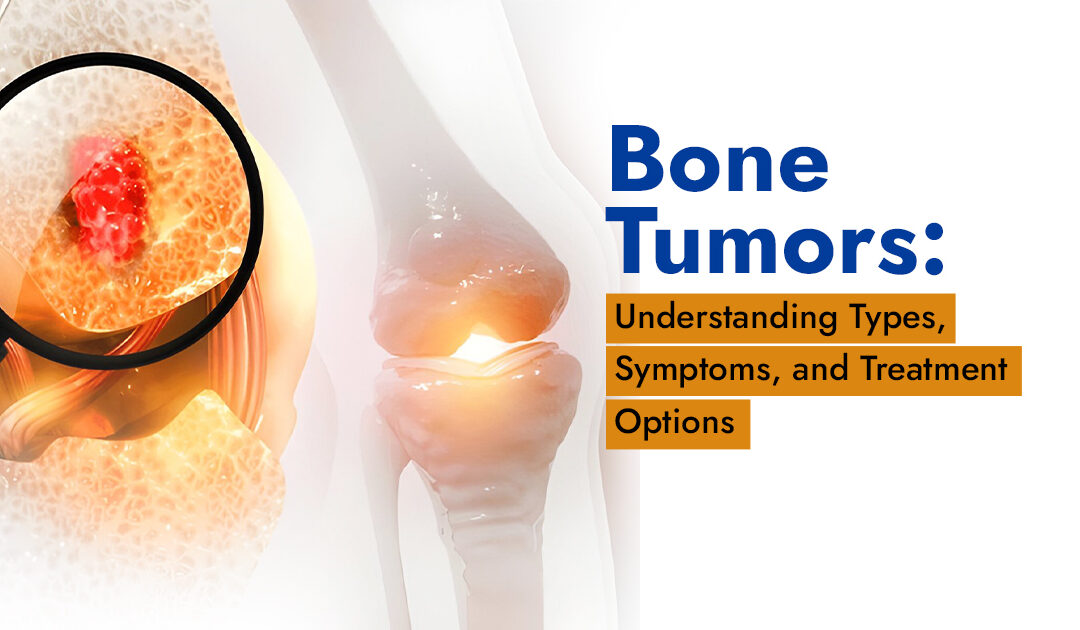Bone tumors are abnormal growths within the bone tissue, which can be classified as either benign or malignant. Though they can develop at any age, bone tumors are more commonly seen in children and young adults.
Types of Bone Tumors
- Benign Bone Tumors: These slow-growing tumors do not spread to other parts of the body and often present few symptoms.
- Osteoma: A small, bony tumor typically found on the skull or jaw.
- Enchondroma: A cartilage-based tumor that forms inside the bone.
- Giant Cell Tumor: Typically occurs at the end of long bones and, though benign, may cause discomfort.
- Malignant Bone Tumors: These are more aggressive tumors that can spread to other areas of the body.
- Osteosarcoma and Ewing Sarcoma: Both are the most common malignant bone tumors, primarily affecting children and young adults.
- Chondrosarcoma: A cancerous tumor developing in the cartilage, often seen in older adults.
Causes and Risk Factors
The exact cause of most bone tumors is unknown, but factors like genetics, exposure to radiation, or certain chemicals (e.g., arsenic, benzene) may increase the risk.
Symptoms of Bone Tumors
The symptoms of bone tumors depend on their type and location. Common signs include:
- Persistent or intermittent pain
- Swelling and tenderness around the tumor site
- Limping, if the tumor is located in a weight-bearing bone
- Weakened bones that may fracture easily
- Unexplained weight loss in some cases
Diagnosis and Treatment of Bone Tumors
Doctors will conduct a physical examination and recommend imaging tests such as X-rays, CT scans, or MRIs. A biopsy may be required to confirm the diagnosis. Treatment varies based on the type, size, and location of the tumor and may include:
- Surgery: The most common treatment for both benign and malignant tumors.
- Chemotherapy: Used to destroy cancer cells in malignant bone tumors.
- Targeted Therapy: Specialized drugs aimed at molecules that promote cancer growth.
Bone Tumor Prognosis
The prognosis for bone tumors depends on their type and stage. Early diagnosis and treatment often lead to better outcomes, with many patients going on to live healthy lives. If you suspect a bone tumor, schedule an evaluation with Dr. TDR. Early detection can significantly improve treatment success and prognosis.
